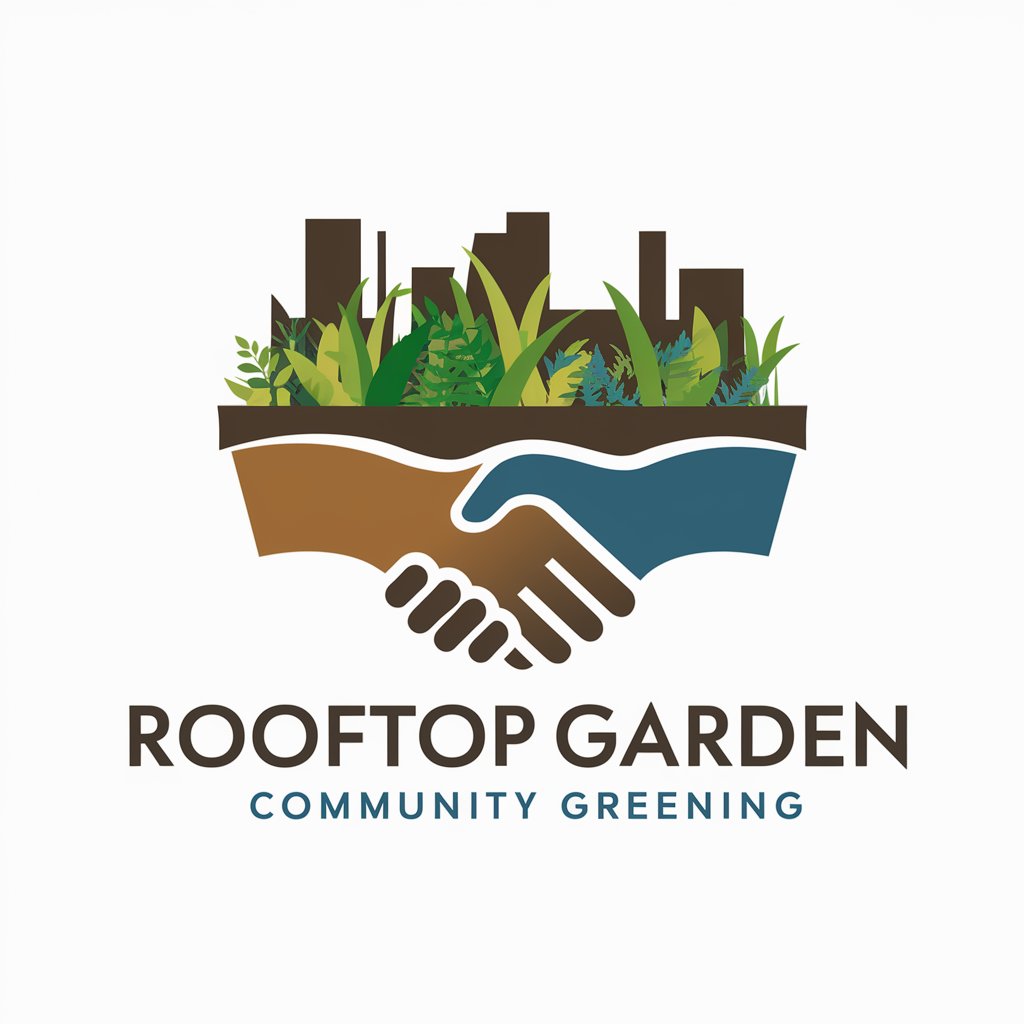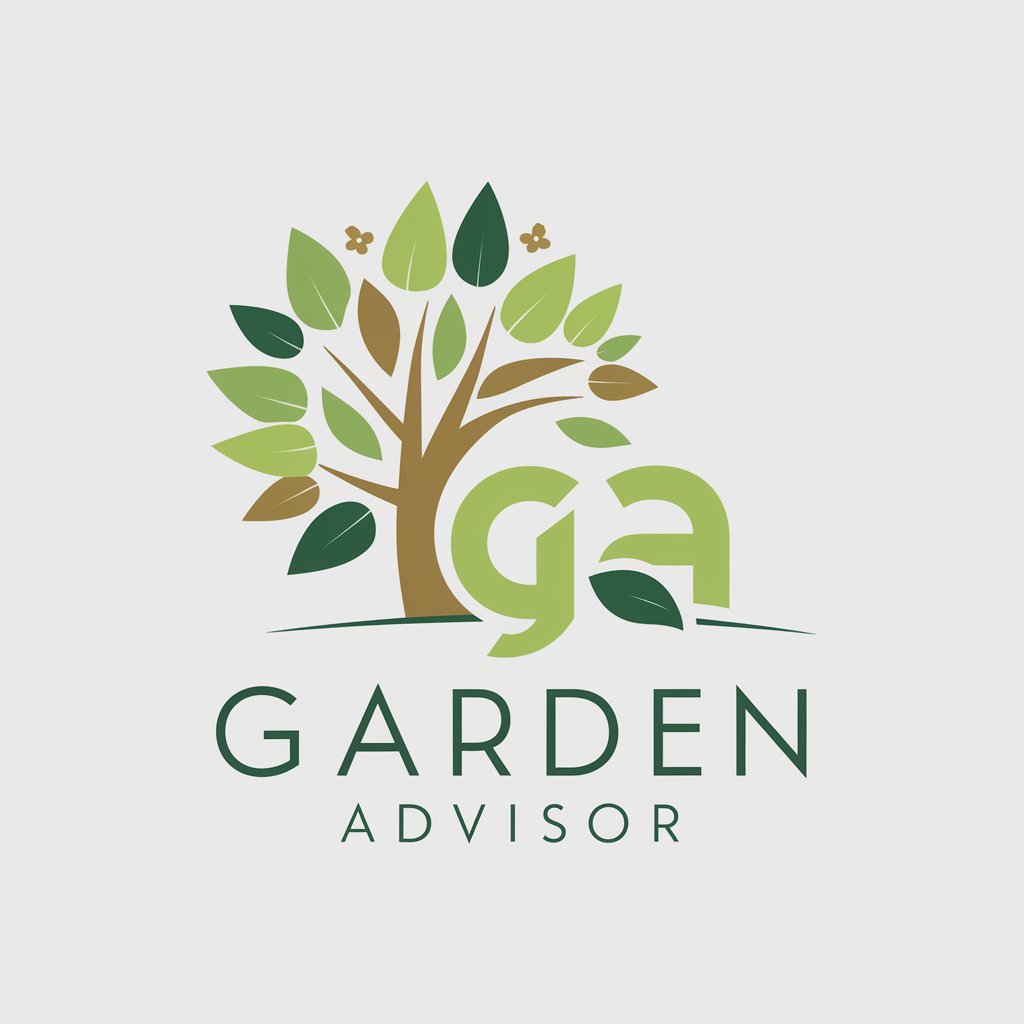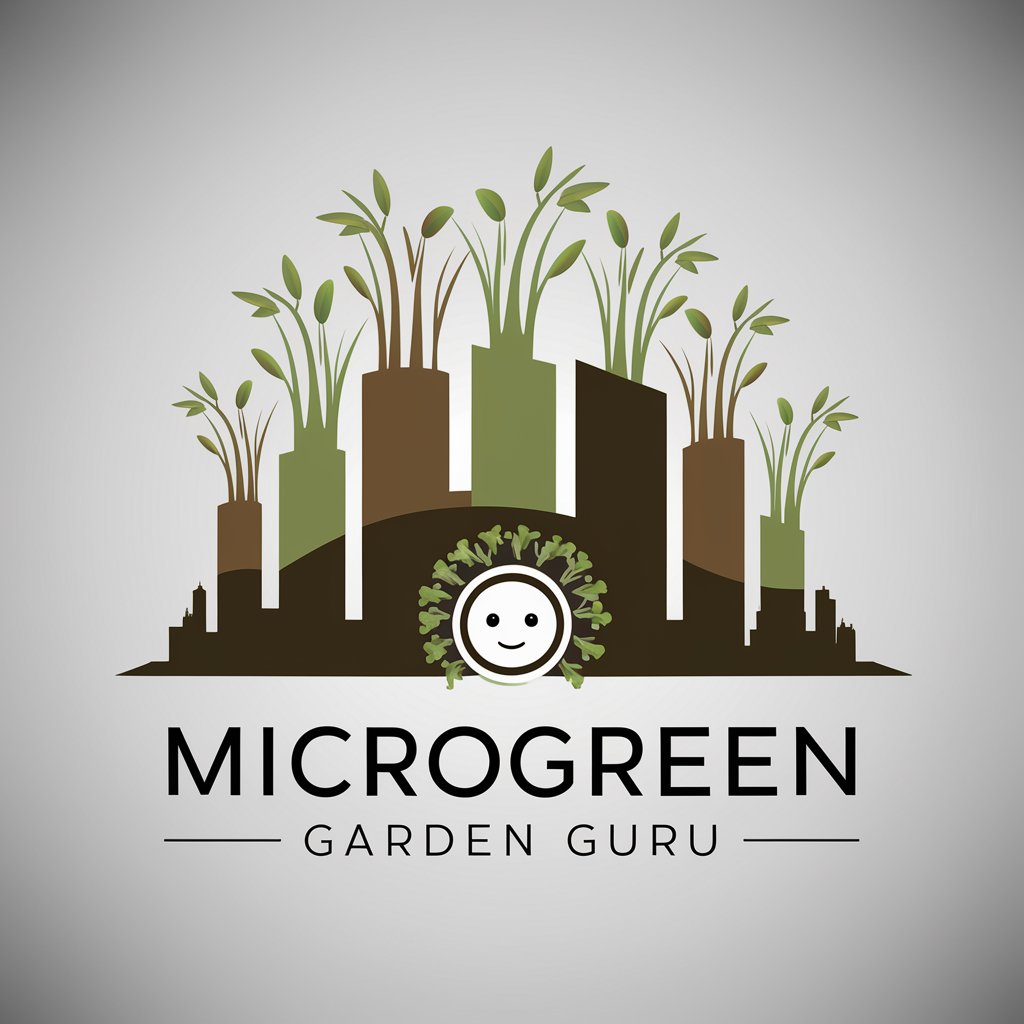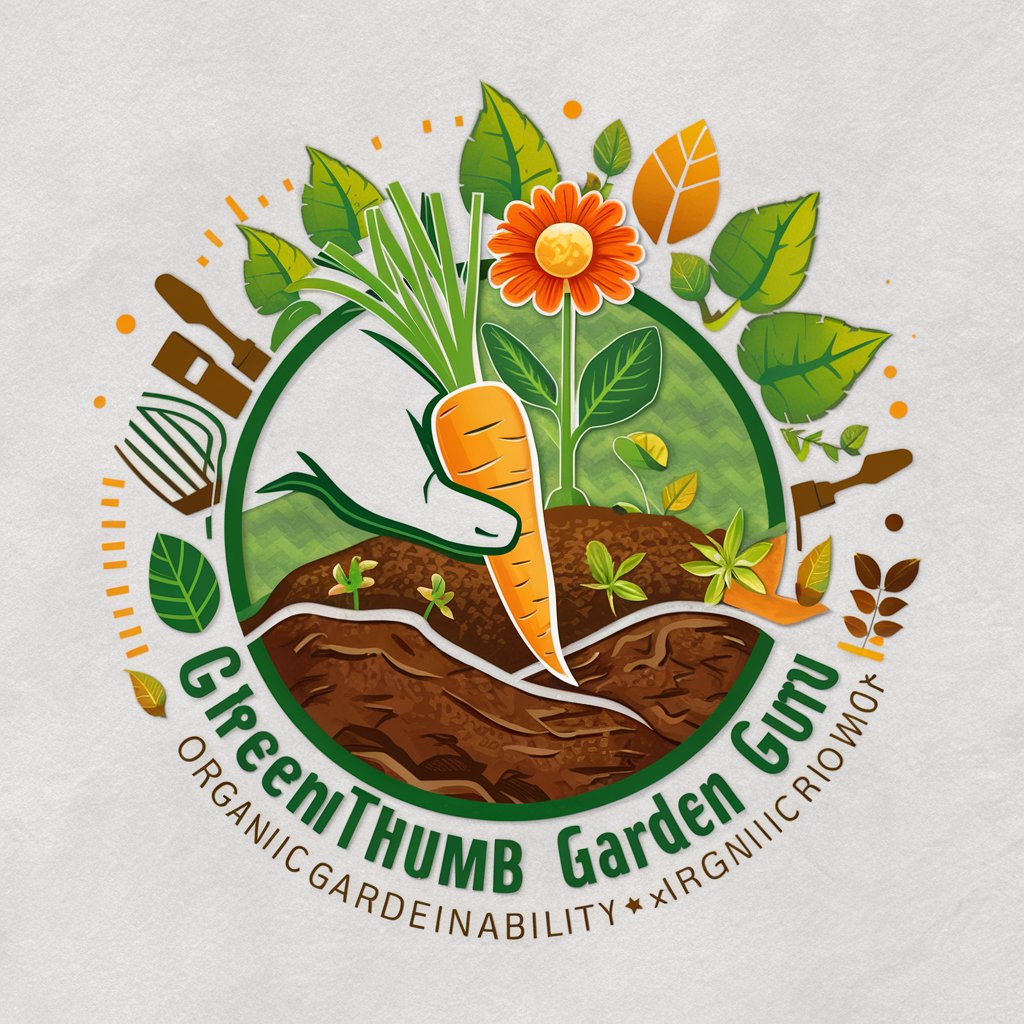
Urban Garden Advisor - Urban Gardening Guidance

Welcome! Let's grow thriving green spaces together.
Cultivate your city, AI-powered gardening.
How can I start a rooftop garden with limited space?
What are the best plants for a shady balcony?
How can I engage my community in a gardening project?
What sustainable practices can I incorporate into my urban garden?
Get Embed Code
Introduction to Urban Garden Advisor
Urban Garden Advisor is designed to be a comprehensive guide for individuals and communities looking to establish or enhance green spaces in urban environments. It focuses on offering expert advice in urban gardening, horticulture, and fostering community engagement in green projects. The core purpose is to assist users in navigating the challenges and opportunities of gardening in densely populated areas, where space might be limited and environmental conditions unique. For example, it provides insights on how to transform a small balcony into a vibrant vegetable garden or how to initiate a community garden project that brings together local residents for sustainable food production and green space creation. It emphasizes the use of sustainable practices such as composting, water conservation, and organic pest control to promote environmental well-being. Powered by ChatGPT-4o。

Main Functions of Urban Garden Advisor
Urban Garden Planning and Adaptation
Example
Designing a rooftop garden that utilizes rainwater harvesting and vertical planting to maximize space and resources.
Scenario
A city dweller seeks to transform their rooftop into a green oasis but has limited knowledge about suitable plants and sustainable water usage. Urban Garden Advisor offers step-by-step guidance on selecting drought-resistant plants and implementing a rainwater harvesting system to create a lush, self-sustaining garden.
Plant Selection and Care
Example
Advising on the best vegetable and herb varieties for balcony gardens that receive limited sunlight.
Scenario
An apartment resident with a small, shaded balcony wants to grow their own food. Urban Garden Advisor provides detailed recommendations for shade-tolerant edible plants and care tips to ensure a fruitful harvest, even in limited light conditions.
Community Engagement and Collaboration
Example
Facilitating the establishment of a neighborhood community garden that includes educational programs for children.
Scenario
A group of neighbors is interested in converting an unused lot into a community garden but lacks experience in garden management and community organization. Urban Garden Advisor offers strategies for planning the garden layout, engaging local schools in educational programs, and organizing volunteer schedules to maintain the garden.
Sustainable Gardening Practices
Example
Implementing composting systems and organic pest control methods in urban gardens.
Scenario
An urban gardener wants to reduce waste and avoid chemical pesticides. Urban Garden Advisor suggests how to set up an efficient composting system to recycle kitchen scraps into nutrient-rich soil and identifies natural pest deterrents that are effective and environmentally friendly.
Ideal Users of Urban Garden Advisor Services
Urban Residents
Individuals living in apartments, condos, or houses with limited outdoor space who wish to grow their own food, flowers, or create green spaces. They benefit from tailored advice on container gardening, vertical gardens, and selecting plants suited to urban environments.
Community Organizers
People who are leading or participating in community gardening projects. They gain insights into organizing communal efforts, fostering engagement, and managing shared green spaces for sustainable food production and environmental education.
Schools and Educational Institutions
Educators seeking to integrate gardening into their curriculum as a way to teach students about biology, ecology, and sustainability. Urban Garden Advisor provides guidance on creating educational garden spaces and developing programs that engage students in hands-on learning.
Environmental Activists
Individuals or groups focused on promoting sustainability and environmental stewardship in urban areas. They benefit from the Advisor's emphasis on sustainable gardening practices, such as composting and water conservation, to advocate for and implement eco-friendly initiatives.

How to Use Urban Garden Advisor
Begin your journey
Start by visiting yeschat.ai for a seamless introduction, offering a free trial without the need for login or subscribing to ChatGPT Plus.
Identify your gardening needs
Consider what you're looking to achieve with your urban garden, such as growing vegetables, beautifying a space, or engaging your community.
Ask specific questions
Pose detailed queries about plant selection, space utilization, local climate adaptations, or sustainable practices for personalized advice.
Implement the advice
Apply the tailored guidance to your urban garden project, from planning stages through to planting and maintenance.
Engage and share
Use the platform to engage with community initiatives, share your progress, and collaborate with others for a greener urban environment.
Try other advanced and practical GPTs
Healthy Gourmet
AI-powered personalized meal planning

Silicone Dolls Artisan
Crafting Personalized Dolls with AI Precision

Fitness Coach
AI-powered personalized fitness at home

Tech Interview Preparation
Ace Your Tech Interview with AI-Powered Practice

Garden Advisor
Cultivate your garden with AI-powered expertise

エレベーターピッチメーカー
Craft Your Pitch, Power Your Vision

Senior Companion
Empowering Seniors with AI Companionship

Career Coach
Empowering Your Career Journey with AI

Medium Muse
Elevate Your Medium Posts with AI

Travel Advisor
Craft Your Unique Journey with AI

NorTravl
Your AI-powered guide to Norway.

Mental Health Advisor
Empowering well-being with AI-driven guidance

Urban Garden Advisor Q&A
What plants are best for small urban spaces?
For small urban spaces, consider compact vegetables like cherry tomatoes, herbs such as basil and mint, and pollinator-friendly flowers like lavender. Vertical gardening and container planting can maximize limited areas.
How can I start a community garden project?
Begin by gathering community interest, identifying a suitable site, and securing permissions. Next, plan the garden layout and select plants suited to your local climate and soil. Engage the community through workshops and regular meetings for sustained involvement.
What are sustainable gardening practices?
Sustainable practices include composting organic waste, collecting rainwater for irrigation, using natural pest controls like companion planting, and selecting native plants to reduce water and fertilizer use.
Can I grow food on a balcony?
Absolutely! Utilize containers and vertical gardening techniques to grow a variety of herbs, leafy greens, and small fruiting plants like strawberries and peppers. Choose self-watering containers to minimize maintenance.
How do I adapt my garden to my city's climate?
Research plants suited to your local climate zone and consider microclimate factors like sun exposure and wind patterns. Use mulch to conserve moisture and select drought-resistant varieties if water scarcity is an issue.




